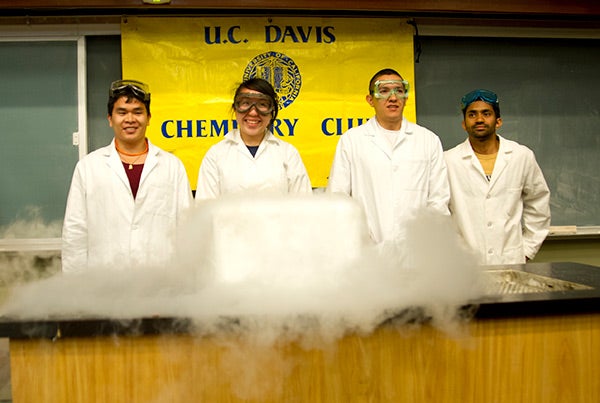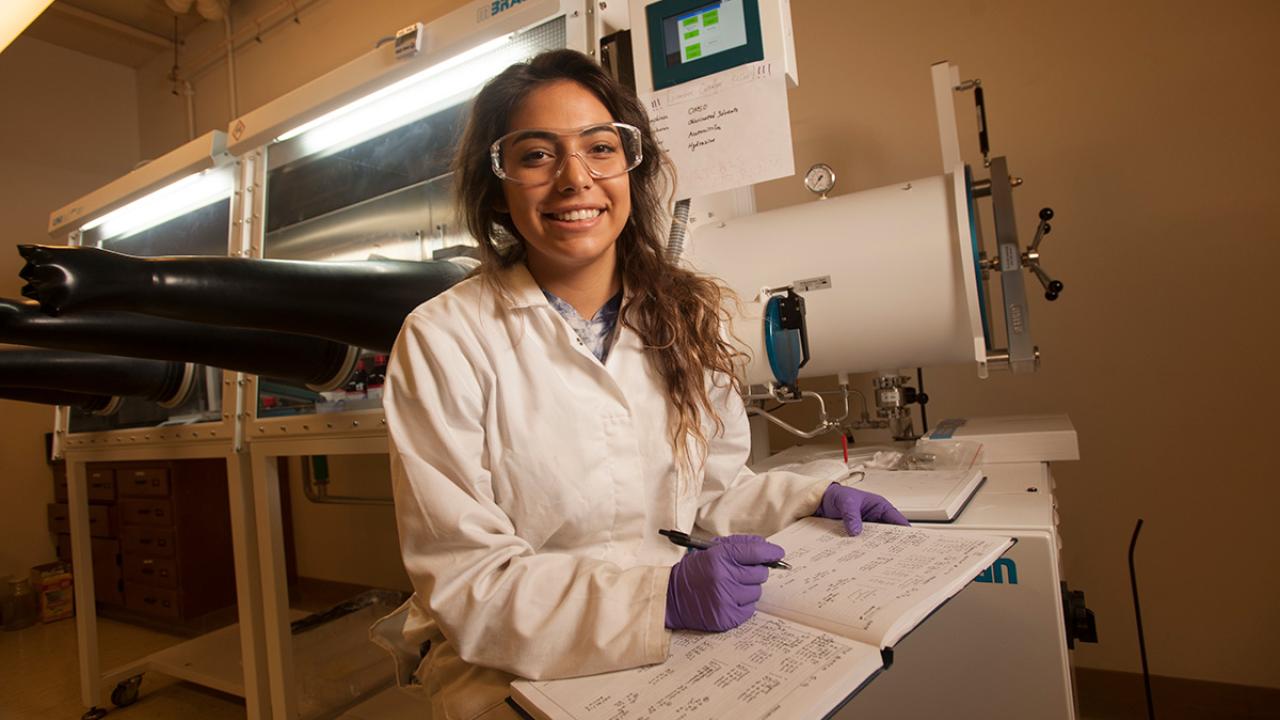When you’re sick with the flu and facing down a week of finals, thank a pharmaceutical chemist for the medicine that brings you relief. However, this major is about much more than treating illness — many paths are open to students who pursue a degree in pharmaceutical chemistry. Maybe that’s why it’s the most popular major of four offered by the UC Davis Department of Chemistry.
What do majors do in pharmaceutical chemistry?
First, let’s cover what it means to study pharmaceutical chemistry at UC Davis. The curriculum is centered in the Department of Chemistry, providing students with an in-depth understanding of how drugs work, how drugs are made and the ethical issues surrounding drug development.
Students in this major will also complete courses that are considered prerequisites for pharmacy and medical schools, including biology, physiology and physics. The department works closely with the UC Davis Office of Health Professions Advising to help ensure their majors can successfully move into health careers, according to undergraduate advisor Perry Gee.
Undergraduate research helps shape career directions

Undergraduate research is strongly encouraged in the major and can help students explore different careers. (Read “5 Reasons Why Undergraduates Should Do Research” to learn more about how to get engaged in research activities at UC Davis.)

For alumna Jessica Gee ’16, internships at a biotech company and a pharmacy helped her choose a research career. She took internships at Marrone Bio Innovations in the city of Davis and as a research scholar in the campus laboratory of Professor Lisa Miller in the Department of Human Ecology.
“Originally, I wanted to go to pharmacy school, which is probably the goal for many pharmaceutical chemistry majors at UC Davis,” she says. “Through my experiences during college, I decided I wanted to go more into the research side of things.”
After graduation, Jessica joined San Francisco biotech startup Multerra Bio, which is developing a life-science tool for proteomics — the large scale study of proteins. “I was specifically interested in startup biotech or pharmaceutical companies so I can grow and learn along with the company itself,” she says.
“Now that I’m part of a startup company, I’m continuing to expand my knowledge and grow. I’m getting insight and participating in the decision-making in this company, and learning to be a self-starter. It’s helped me build my skill set and confidence,” Jessica says. “I am thinking about continuing down this path with a master’s degree.”
Prepared for health-oriented professional schools

Many undergraduates opt for pharmaceutical chemistry because they plan to apply to pharmacy, medical, dental or other professional schools focused on health. UC Davis students will also be well prepared for graduate school in chemistry and related sciences.
Consider more unusual careers:
- Law or business: Combining a science degree with an MBA or a law degree positions graduates for careers in patent law, investment firms and management.
- Our majors can develop careers in manufacturing firms that focus on chemicals, pharmaceuticals, and oil and gas.
- Environmental monitoring or remediation work: A pharmaceutical chemistry major is great training for helping measure and treat pollution and contamination.
- Food production: Inventing flavors for chips and improving the storage life of foods are just two of the many ways chemists contribute to food science.
- Alumni are prepared to analyze grape and wine production in Northern California’s billion-dollar industry.
- Cosmetics: From creating lipsticks to perfecting face creams, chemists play an important role in the cosmetics industry.
Learn more about this major
If this field intrigues you, contact an academic advisor in our chemistry department for more details. And check out the UC Davis Chemistry Club, which organizes social and networking events each month. Chemistry students also have the opportunity to participate in science outreach events such as the Chemistry Magic Show during Picnic Day, put on by the Chemistry Club.
Becky Oskin is a content strategist for the College of Letters and Science, where she covers general science topics. She earned a master's degree in geology from Caltech, a bachelor's degree from Washington State University and a graduate certificate in science writing from UC Santa Cruz.
